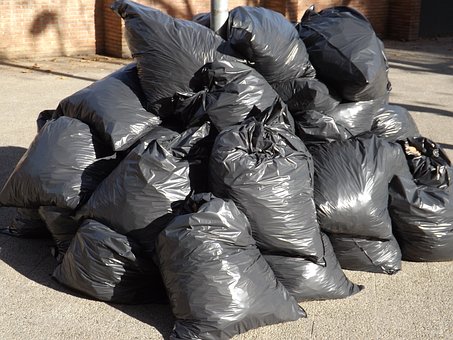Welcome to KDS Environmental
Reliability
100%
Affordability
100%
Professionalism
100%
Reputation
100%
 It is no secret that the quantity of home waste produced is increasing year after year at a disconcerting rate, and government are under pressure to expand existing landfills or construct brand-new ones to accommodate the waste that is being produced.
It is no secret that the quantity of home waste produced is increasing year after year at a disconcerting rate, and government are under pressure to expand existing landfills or construct brand-new ones to accommodate the waste that is being produced.
What is Hazardous Household Waste?
Household waste is leftover from home products. Hazardous home waste are home products which contain chemicals that have the potential to affect plants, the health of people and animals and are damaging to the environment when dealt with incorrectly
Improper management of home waste has the potential to be extremely damaging to the environment, people, and animals. What many of us may not recognize is that many of those common home products contain corrosive, harmful, or combustible chemicals that can be dangerous to the environment if not dealt with or managed effectively.
Hazardous home waste should not be disposed of in the same way as routine waste. For instance, gasoline can be buried in the ground, can affect rivers, and find its way into drinking water. The hydrocarbons in motor oils or pesticides have the potential to bio-accumulate in freshwater fishes and can find its way in the food chain. Burning hazardous waste leads to the release of harmful chemicals and fumes in the air. Once released into the environment, these chemicals are distributed over big locations, thus impacting the health of persons over a broader area.
A few of these chemicals remain in the systems of plants and animals for a long time and may get in the food chain when the affected plants and animals are taken in.
 Bioaccumulation of dangerous compounds in the systems of plants, animals, and people has the potential to affect their reproductive lives, growth, hinder the function of various organs such as the liver and kidneys, affect the performance of the central nervous systems and immune systems of human and animals and some have been listed as known carcinogens.
Bioaccumulation of dangerous compounds in the systems of plants, animals, and people has the potential to affect their reproductive lives, growth, hinder the function of various organs such as the liver and kidneys, affect the performance of the central nervous systems and immune systems of human and animals and some have been listed as known carcinogens.
How Can You Tell a Product is Hazardous?
Check out the labels of products. In Lytle and other parts of the country, labels are required for all products. These should provide information on the constituents of the products, including signs and words, to indicate the threat to animals, people, and the environment if mishandled.
How To Tell If Products Are Hazardous?
Always read the label of products in your home and make it a practice of checking out the labels of a product before making the decision to purchase them.
What Can You Do to Manage Hazardous Waste?
Purchase Environmentally Friendly Products – Experts concur that the best way to manage waste is to not produce it in the first place. You can start by avoiding the purchase of products that contain chemicals that are hazardous to people, animals, and the environment. Purchase those products that are eco-friendly or friendly to the environment.
Safe Product Storage – Ensure that dangerous products are kept in a safe place, that their containers are not damaged, do not have any leaks to decrease the danger of infecting water sources, land, people, animals, plants, and the environment. Ensure that corrosive products like acids are kept in separate locations from other dangerous products.
Check products often to ensure that there are no leaks and damaged lids or bulging sides.
Always store products in their initial containers to prevent unintended use.
Ensure that these products are kept in a place where children and animals have no access to them.
Disposal of Products – Disposal of products should always be the last option. Why? Because there are no safe methods of disposing of hazardous waste. You can prevent the predicament of hazardous waste disposal by either choosing eco-friendly products, recycling the product, giving the excess products to friends, next-door neighbors, or family or acquiring smaller sized volumes of the product.
 If, however, disposal is inescapable, then you should get rid of the waste in the manner recommended on the label.
If, however, disposal is inescapable, then you should get rid of the waste in the manner recommended on the label.
Although there are laws to regulate the handling and use of big amounts of hazardous waste, the presence of laws to regulate the normal small quantities generated at the home is non-existent. For this reason, the duty for the management of hazardous waste falls squarely on the shoulders of the hazardous waste generators.
Protection of the environment can only take place when you contribute in finding innovative ways to re-use, recycle, or decrease waste. This is necessary if we are to secure the environment and health of future generations. Keep In Mind That Waste Management is Your Business, My Business, Our Business.
if you are in Lytle or Coal Mine, Atascosa, Natalia, Pearson, La Coste, Noonan, Somerset, Macdona, Devine, Mann Crossing, call us now!
We are experts in environmental clean-up, and we can help you with eradicating dangerous items in your home. Our number one goal is to ensure that the environment is safe for everyone to live in, and your health is protected. Get in touch with us today and get a free, no-obligation quote.
We are the best eco-friendly company you can trust in Coal Mine, Atascosa, Natalia, Pearson, La Coste, Noonan, Somerset, Macdona, Devine, Mann Crossing and Lytle.